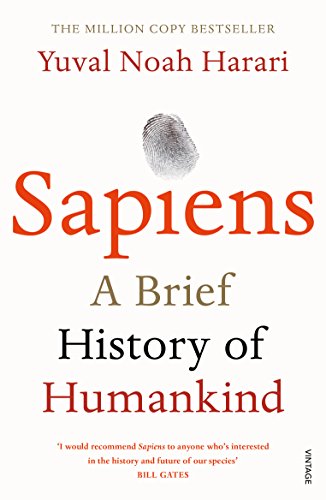
Sapiens: A Brief History of Humankind

If not, what was the point of developing agriculture, cities, writing, coinage, empires, science and industry? Historians seldom ask such
Yuval Noah Harari • Sapiens: A Brief History of Humankind
A crucial part of the modern capitalist economy was the emergence of a new ethic, according to which profits ought to be reinvested in production. This brings about more profits, which are again reinvested in production, which brings more profits, et cetera ad infinitum. Investments can be made in many ways: enlarging the factory, conducting scient
... See moreYuval Noah Harari • Sapiens: A Brief History of Humankind
Rather, cultures are mental parasites that emerge accidentally, and thereafter take advantage of all people infected by them.
Yuval Noah Harari • Sapiens: A Brief History of Humankind
So perhaps happiness is synchronising one’s personal delusions of meaning with the prevailing collective delusions.
Yuval Noah Harari • Sapiens: A Brief History of Humankind
During Communist China’s Great Leap Forward of 1958–61, somewhere between 10 and 50 million human beings starved to death.
Yuval Noah Harari • Sapiens: A Brief History of Humankind
Credit enables us to build the present at the expense of the future.
Yuval Noah Harari • Sapiens: A Brief History of Humankind
All human activities and industries put together consume about 500 exajoules annually, equivalent to the amount of energy earth receives from the sun in just ninety minutes.
Yuval Noah Harari • Sapiens: A Brief History of Humankind
Back then, each British city and town had its own local time, which could differ from London time by up to half an hour. When it was 12:00 in London, it was perhaps 12:20 in Liverpool and 11:50 in Canterbury.
Yuval Noah Harari • Sapiens: A Brief History of Humankind
Each year the US population spends more money on diets than the amount needed to feed all the hungry people in the rest of the world.